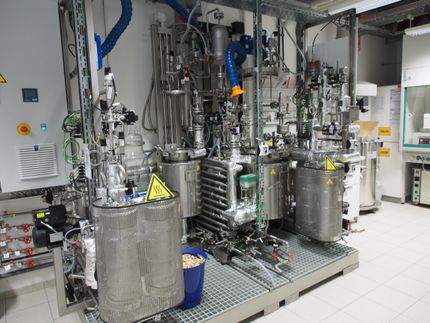BASF and Renmatix agree on a joint development for the production of industrial sugars from biomass
BASF, Ludwigshafen, Germany, and American technology provider Renmatix Inc. of Philadelphia, Pennsylvania, will jointly scale up the Renmatix Plantrose process for the production of industrial sugars based on lignocellulosic biomass. T he two companies signed a non-exclusive joint development agreement. The parties have agreed to key financial terms for future commercial licenses, which BASF can exercise at its discretion. The collaboration follows BASF’s $30 million investment in Renmatix in January 2012.
The Plantrose technology developed by Renmatix enables industrial sugar to be produced, at competitive costs, from a variety of non-edible biomass (lignocellulose) sources. The proprietary process breaks down lignocellulosic sources (e.g. wood, agricultural-residues or straw) into industrial sugars using supercritical water (water at high temperature and pressure). Industrial sugars are important building blocks for various basic chemicals and intermediates that can be produced, for example, by fermentative processes. The availability of these industrial sugars in sufficient quantities and at competitive cost is important to enable both environmentally-friendly and cost-competitive bio-based products. Incorporating biomass feedstocks as a first step in the value chain, creates a raw material change that can reduce reliance on fossil raw material sources like naphtha as principal feedstock.
Projects relating to the topic of raw material change make up one important technology field in BASF’s Research Verbund. BASF experts are engaged in identifying interesting processes for utilizing alternative raw materials, such as renewables, natural gas, and CO2.
“Raw material change will only be possible via process innovations that allow the utilization of alternative sources of raw materials,” said Dr. Peter Schuhmacher, President of BASF’s competence center Process Research and Chemical Engineering. “It requires processes like Plantrose, which will be further developed in a joint effort, that enable the use of non-edible biomass as a chemical feedstock and which do not compete with food or feed production. The Plantrose process addresses our needs for renewable raw materials. It will help us to support our customers in developing solutions that contribute to sustainable development. ”
“ Over the past two years, BASF has made significant investments of time and capital to support our efforts at Renmatix ,” said Mike Hamilton, CEO of Renmatix. “ At Renmatix we are focused on supporting the emerging biochemical market by enabling progressive leaders to scale up Plantrose capacity to increase the global chemical industry’s access to cost-effective industrial sugars.”
Organizations
Other news from the department business & finance

Get the chemical industry in your inbox
By submitting this form you agree that LUMITOS AG will send you the newsletter(s) selected above by email. Your data will not be passed on to third parties. Your data will be stored and processed in accordance with our data protection regulations. LUMITOS may contact you by email for the purpose of advertising or market and opinion surveys. You can revoke your consent at any time without giving reasons to LUMITOS AG, Ernst-Augustin-Str. 2, 12489 Berlin, Germany or by e-mail at revoke@lumitos.com with effect for the future. In addition, each email contains a link to unsubscribe from the corresponding newsletter.
Most read news
More news from our other portals
Last viewed contents
Varian, Inc. Debuts High Productivity AA Spectrometer

Nano start-up SALD opens up to investors - "Our patented technology will revolutionize entire industries."


























































